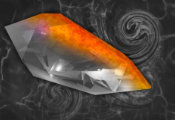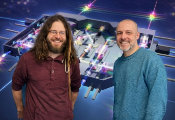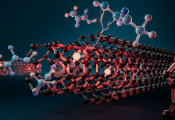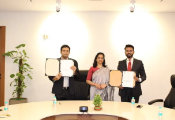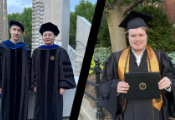Wayne State University Professor Receives Grant to Study Quantum Tunneling
DETROIT, August 5, 2024 -- A Wayne State University professor recently received a three-year, $626,467 grant from the National Science Foundation’s Division of Physics. The project, “Probing Nonadiabatic Strong Field Ionization with Phase-Resolved Attoclock,” will research a quantum mechanical process known as quantum tunneling.
Wen Li, Ph.D., professor of chemistry in Wayne State’s College of Liberal Arts and Sciences and his research team propose a new technique they have developed to study the process of quantum tunneling, a quantum mechanical phenomenon in which an object such as an electron or atom passes through a potential energy barrier that, according to classical mechanics, should not be passable due to the object not having sufficient energy to pass or surmount the barrier.
“What’s not known about quantum tunneling is the behavior of the particles during the tunneling process,” said Li. “When you pull electrons through a barrier created by the nucleus with an intense laser field, it is unknown what happens within the barrier. This particle essentially goes through a wall as though there was no wall there and we don’t know how. We want to study what that electron does within that barrier.”
Quantum tunneling is a fundamental process that underpins many important physical phenomena and technologies, such as nuclear fusion and chemical reactions essential for life. Li aims to answer the critical question of whether tunneling is instantaneous and will investigate whether new detector technologies can be developed.
“Other than study the general behavior of particles, we want to understand the process to improve attosecond pulse production,” said Li. “This is important for developing a fast camera that takes 10 to the power of 16 frames per second to measure fast electron processes, such as those seen during a chemical reaction. We need something that fast to observe these processes. If you understand electrons, you can understand chemical reactions. If you understand chemical reactions, you can understand biology. That means that the eventual applications of this research could be enormous.”
“This research has the potential to have a far-reaching impact in a wide range of fields, including medicine, business and beyond,” said Ezemenari M. Obasi, Ph.D., vice president for research & innovation at Wayne State University. “I look forward to seeing the important outcomes of Dr. Li’s research team.”

